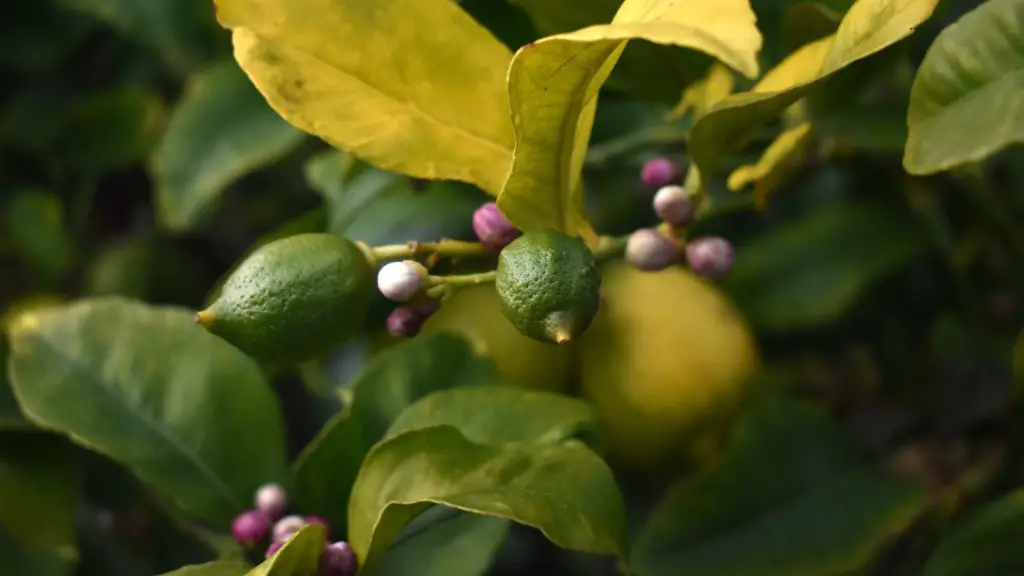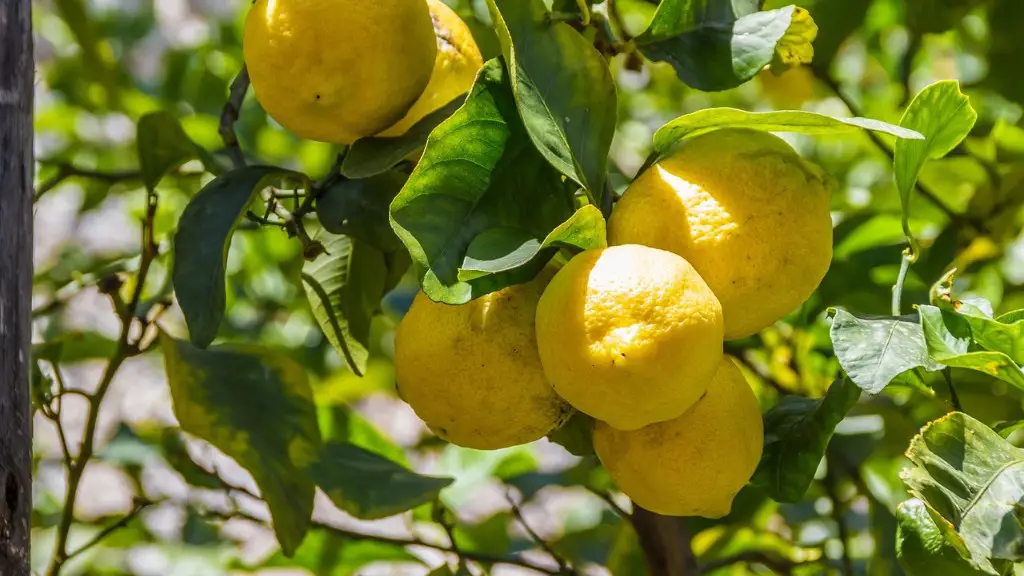It is important to recognize when to pick lemons off a tree in order to efficiently use its produce. This is true for any tree bearing fruits, including the lemon. Picking lemons at the proper time means the difference between a delicious, juicy fruit and an overly sour lemon that is less palatable. In order to pick lemons at their peak, it is important to understand the process of ripening and signs of maturity.
Lemons begin to ripen on the tree when they turn from green to yellow. This transition is usually gradual and can take a few weeks. The lemon will become softer and lighter in color as its internal sugars mature, resulting in its characteristic sweet-tart flavor. As the lemon continues to ripen, its skin will become thinner and the color will become more intense. It is also likely that the lemon will give off a sweet yet acidic scent.
In order to discern when to pick the lemons, growers should look for a few key characteristics. As the lemons mature and ripen, they become softer and have a more yellowish color. At the same point in ripeness, the flavor of the lemon will be fully developed and the aroma will be at its best. If you intend to pick the lemons for juicing, then they should be plucked as soon as possible, before the sugars start to break down and the lemon becomes too soft.
For those who want to pick lemons to use in the kitchen, it is best to wait until the lemon is fully ripened and ready to be used. The best way to determine ripeness is by feeling the lemon. If it is still quite firm, then it still needs some time to ripen. On the other hand, a lemon that is softer to the touch but still maintains a good shape is perfect for use.
Lemons are also ripe when their skin is a deep and glossy yellow. When their exterior becomes wrinkly and dry, this is a sign that the lemon is overripe. Overripe lemons can still be used in cooking, but their flavor and fragrance may have diminished.
In summary, the best time to pick lemons off a tree is once they have fully ripened. For juicing purposes, earlier pickings will do; however, they are not ideal for use in the kitchen as their flavor will not be as intense. For kitchen use, lemons should be plucked when they are fully yellow, glossy, and soft to the touch, but not wrinkly or overly mushy.
Unripe and Ripe Lemons
Unripe lemons are typically characterized by an intense green color and a firm texture. Unripe lemons are not ready for consumption or use in cooking, but they can be stored and allowed to ripen over time. When a lemon is ripening, it remains firm but begins to turn yellow in color. A good indicator of ripe lemons is when a lemon is yielding to light pressure when poked gently and has developed a bright yellow to light orange color. At this point, the lemons are considered ripe and ready for harvest.
Harvesting Techniques
Knowing when to pick lemons off a tree is not enough; it is equally important to be aware of the proper harvesting techniques. When picking lemon fruits, it is important to take caution not to damage the stalk or stem of the fruit as that can cause the fruit to ripen prematurely. Furthermore, eye protection should be worn as the lemon juice can be severely acidic and hurt the eyes if splashed on them. When harvesting the lemons, it is best to use clippers and make sure the stem is still attached to the fruit. This will help guarantee the longer shelf life of the lemon.
Storage Basics
Once the lemons are picked from the tree, it is important to store them appropriately to ensure long shelf life. If desired, lemons can be stored at room temperature for up to a week in a paper bag or bowl. For longer shelf life, store lemons in the refrigerator for up to two weeks. This will prevent the lemons from spoiling prematurely and maintain their flavor and freshness.
How to Use Lemons
There are countless ways to incorporate lemons into cooking. Lemon juice is a great ingredient for marinating meat and can easily be used as a salad dressing, adding both flavor and tartness to a dish. It is also a great ingredient for baking, giving baked goods a bright, citrusy flavor. Lemons are also a great addition to smoothies and cocktails, adding a refreshing twist to the drink. Additionally, lemons can be added to sauces and soups to give them a flavorful kick.
Health Benefits of Lemons
In addition to its culinary applications, lemons are well-known for their numerous health benefits. Lemons are an excellent source of vitamin C, which helps boost the immune system and fight off chronic illnesses. Moreover, lemon juice has been found to aid in digestion, reduce inflammation, and alleviate the symptoms of nausea. On the other hand, lemon juice is also a great remedy for acne due to its anti-inflammatory properties. It can also be used in the treatment of sunburns to help soothe the skin and reduce redness.

